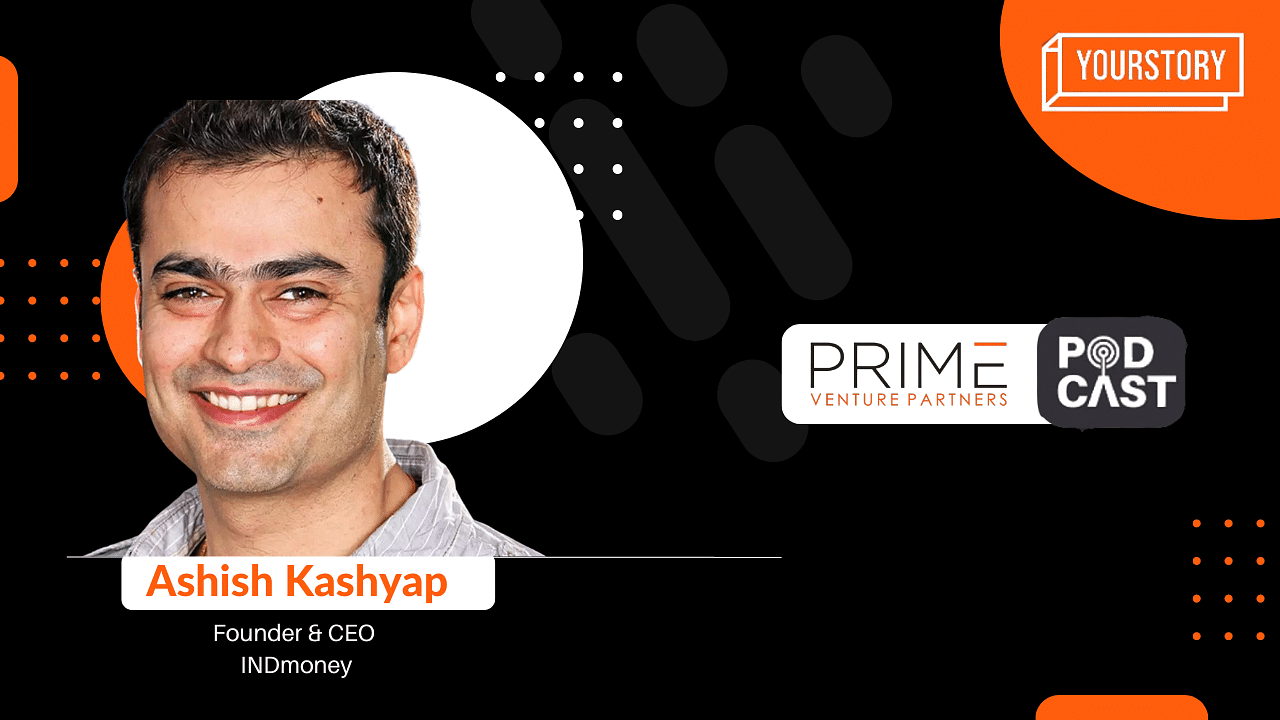Ashish Kashyap, Founder and CEO of INDmoney, launched his financial services platform with the vision of solving a simple customer problem.
He’d realised that given a chance, most consumers wanted to take control of their financial lives. But they faced a big hurdle: lack of transparency among financial services.
This prompted him to launch INDmoney, a fintech platform that simplifies the process of investing in US stocks, mutual funds, and other assets. Launched in 2019, INDmoney has witnessed exponential growth, and has more than five million users.
“Most of the growth has actually come in the last 12 to 16 months. Transactions worth approximately $2 billion have taken place on our platform in the last year, which also is a sign of the trust score (the platform becoming better), or trust acceleration (between consumers and the platform),” Ashish says.
Building trust with value
While many financial services providers try to lure customers with cashback and coupons, INDmoney focuses on delivering 10x, 20x, or 50x value to end users. That’s what has helped the company optimise customer acquisition costs and attract millions of users.
“I think we had a justification in the past that we need to build consumer behaviour to use the medium. I don’t think that’s the case anymore. So, your core business needs to be based around the core value of the product and not the cashback,” Ashish says.
Also, it’s crucial to deliver that value to customers as soon as you onboard them. In today’s competitive landscape, you “can’t afford to wait before you show customers what sets you apart”.
“So, there are certain things with which you will give him long-term value, but the consumer needs to feel valued very quickly. On D0, D1. If he doesn’t see D0, D1, he will not sustain. The trust will not be built, but he’ll also uninstall the app, right? So giving back value to the consumer very quickly is really critical to building trust,” he says.
Decoding the crypto wave
Cryptocurrencies have been dominating headlines for various reasons, and Ashish is among the proponents of this decentralised, virtual currency.
Crypto tokens have potential to become their own asset class in the future. However, government-backed regulations are crucial for protecting consumers from the growing trend of cryptocurrency scams. It’s just as crucial to check the source and movement of the money they use for crypto trading.
“I am a firm believer of crypto, but obviously for me to start jumping into it as an operator, we would definitely need the regulator and the government to create a rule engine around it. And that’s something which I would personally really, really welcome,” Ashish says.
Scope of entrepreneurship in India
Most people believe this is an exciting time to start your entrepreneurial journey in India. On one hand, business leaders have access to the tools and resources they need to launch and scale their ventures. On the other, there’s ample engineering talent available across the country, willing to build products and services that deliver value to consumers.
Ashish believes aspiring entrepreneurs should make it a point to embrace failure and learn from their mistakes instead of being risk-averse.
“Even large companies like Google face a lot of mini-failures. They don’t talk about it, but every company, every individual will have lots of many, many small failures. The trick is just do it faster, reduce the cost, and get your learnings out,” Ashish concludes.
You can listen to the full episode here
Time stamps:
05:00 – Founding & Scaling the Ibibo Group (goibibo, redBus & PayU)
14:30 – Making financial services easily accessible
29:00 – Cryptocurrency: regulation and opportunities
33:00 – 3 important lessons from a 20-year journey
36:00 – Entrepreneurship opportunities in India










